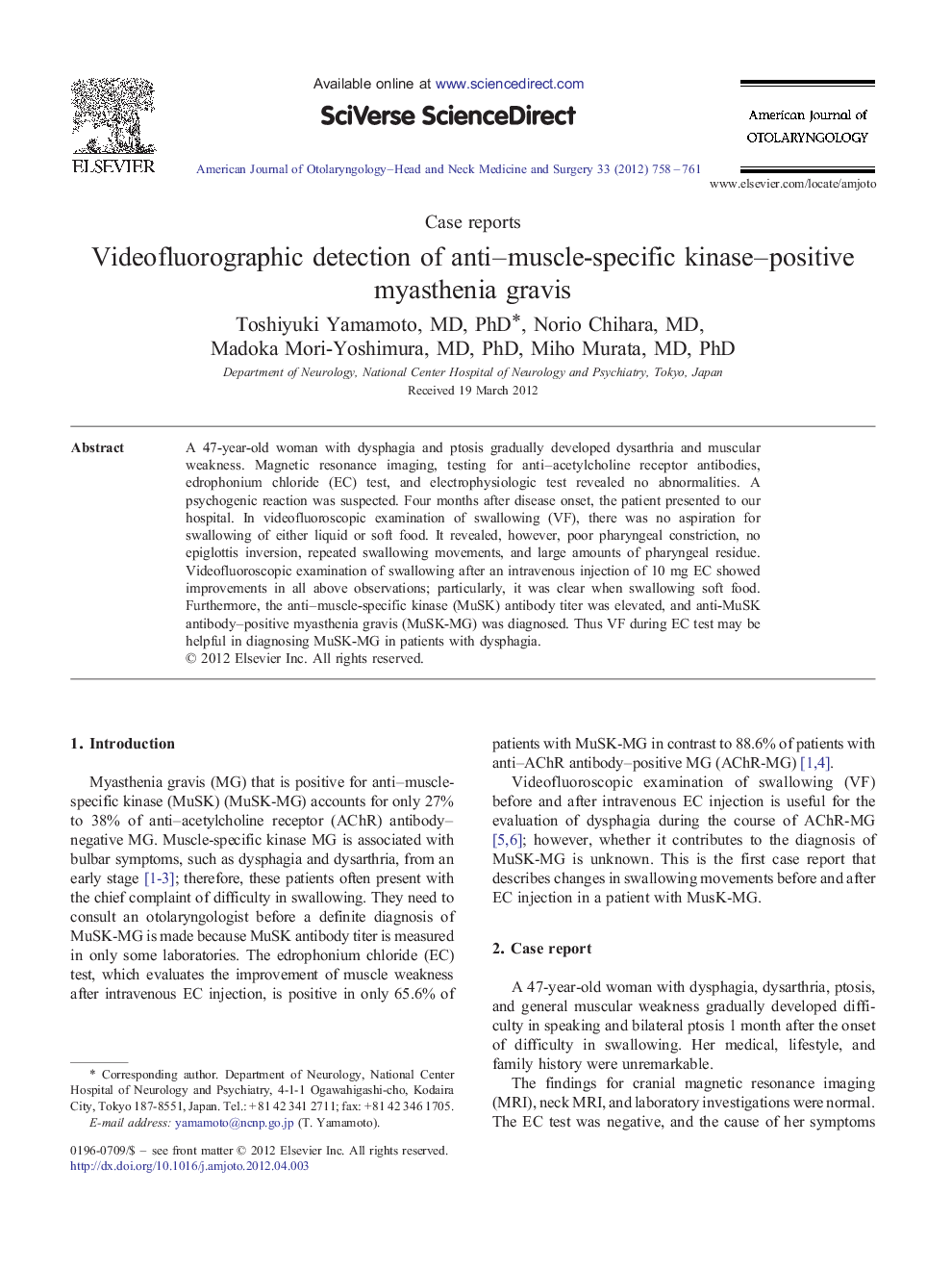| Article ID | Journal | Published Year | Pages | File Type |
|---|---|---|---|---|
| 4103327 | American Journal of Otolaryngology | 2012 | 4 Pages |
A 47-year-old woman with dysphagia and ptosis gradually developed dysarthria and muscular weakness. Magnetic resonance imaging, testing for anti–acetylcholine receptor antibodies, edrophonium chloride (EC) test, and electrophysiologic test revealed no abnormalities. A psychogenic reaction was suspected. Four months after disease onset, the patient presented to our hospital. In videofluoroscopic examination of swallowing (VF), there was no aspiration for swallowing of either liquid or soft food. It revealed, however, poor pharyngeal constriction, no epiglottis inversion, repeated swallowing movements, and large amounts of pharyngeal residue. Videofluoroscopic examination of swallowing after an intravenous injection of 10 mg EC showed improvements in all above observations; particularly, it was clear when swallowing soft food. Furthermore, the anti–muscle-specific kinase (MuSK) antibody titer was elevated, and anti-MuSK antibody–positive myasthenia gravis (MuSK-MG) was diagnosed. Thus VF during EC test may be helpful in diagnosing MuSK-MG in patients with dysphagia.
